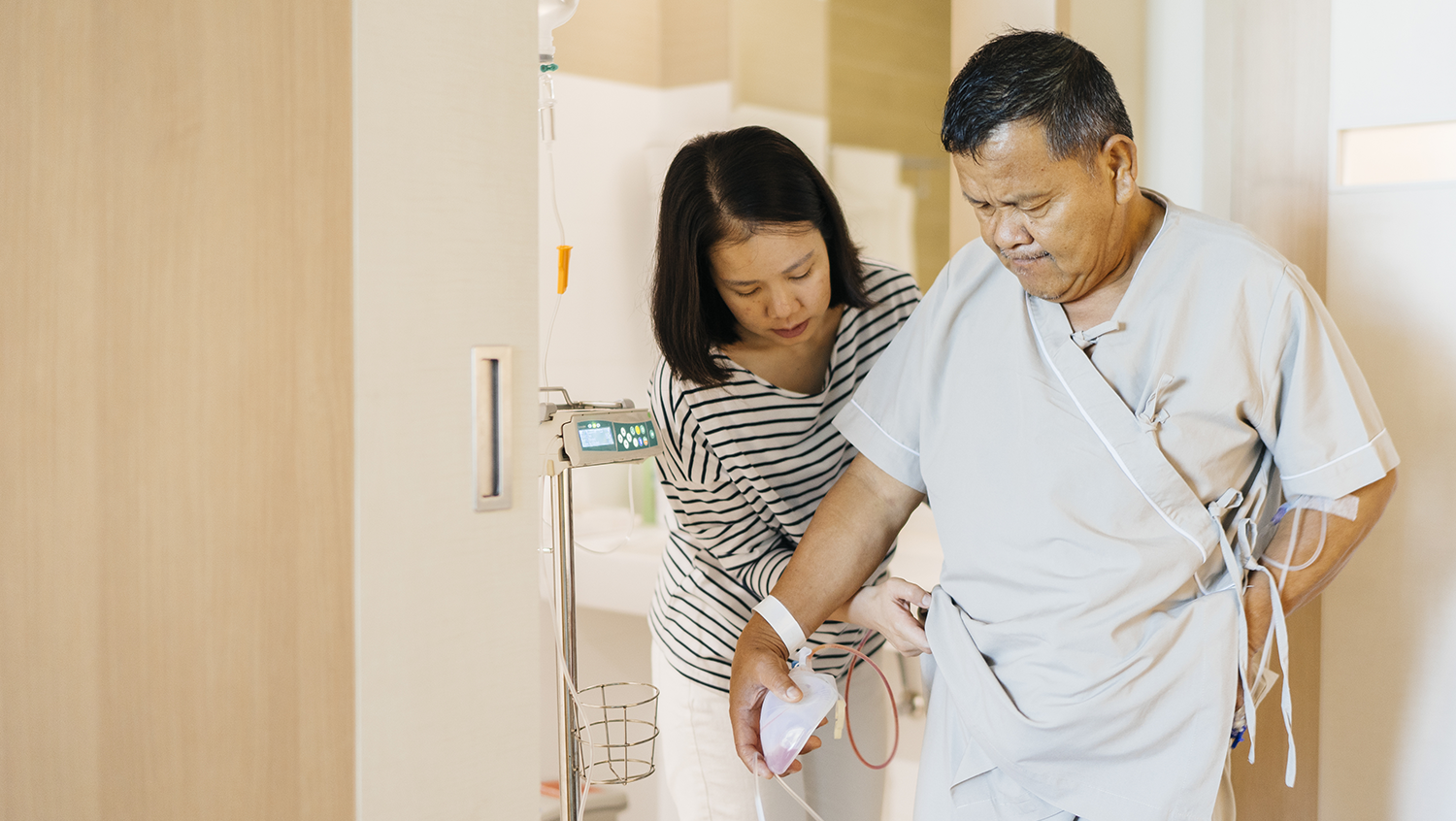Spouses of Surgery Patients Are at Increased Risk for Initiating Opioid Use
February 8, 2022

Skaman306, Getty Images
Most surgical patients have unused opioid pain medication. Researchers say family should be educated about its proper usage, security, and disposal.
The Bottom Line
Spouses of patients who were prescribed opioids for common surgical procedures were significantly more likely to initiate opioid use themselves in the six months after their partner’s surgery than spouses of patients who were not prescribed opioids for surgery.
The findings help illuminate both counseling opportunities and treatment pathways for opioid use disorder.
Context
The last two decades, since 1999, has seen a dramatic increase in prescribing opioids, as well as a rise in opioid-related overdose deaths, according to the Centers of Disease Control and Prevention, creating the opioid epidemic. While there is a distinct role for opioids to manage pain for surgical patients, physicians and surgeons—as well as policymakers—have to weigh the potential risks. Researchers have documented the benefits and adverse effects of surgical opioid use, but the risk of surgical opioids on a patient’s family members has not been well studied.
Study Objective
Determine if prescribing opioids for a surgical patient is associated with increased risk of the opioid-naïve patient’s spouse to initiate their own opioid use.
The Details
This retrospective cohort study from Boston Medical Center, Brigham and Women’s Hospital, Tufts University School of Medicine, and New England Baptist Hospital looked at over 318,000 opioid-naïve married patients with prescription drug insurance who underwent one of 11 common surgeries: appendectomy, breast lumpectomy, colectomy, hysterectomy, total knee arthroplasty, coronary artery bypass grafting, cholecystectomy, inguinal hernia repair, knee arthroscopy, shoulder arthroscopy, or surgical fixation of upper extremity fractures. The married patients’ surgeries occurred between January 1, 2011 and June 30, 2017.
The average age of surgical patients was 48.8 years old; 49.5% were women; and 61.7% of the couples had children. Patients did not have any other household member—including young children and to teenagers—who had been prescribed opioid pain medications as recently as the prior year.
Researchers looked at the association between surgical opioid prescriptions given to these patients and opioid initiation between that patient’s spouse in the six months following the procedure. Initiation was marked by a new opioid prescription fill.
Findings
Of the 318,022 surgical patients, 267,189 (84%) filled an opioid prescription; 50,833 (16%) did not. Among those who did not, 2,152 (4.2%) had opioid-naïve spouses who filled their own opioid prescription within 180 days of their spouse’s surgery. For the 267,189 patients who filled a surgical opioid prescription, 15,026 (5.6%) had spouses fill their own prescription in that same amount of time.
Previous data suggests that up to 90% of patients have unused opioids after surgery. This new research and the timing of the spouse’s opioid initiation could suggest that the spouse’s use begins when the surgical patient finishes their stint on pain medicine, potentially leaving excess prescribed medication.
The data illuminates the need for spousal, or even family, counseling about safe consumption when a surgical patient is discharged with an opioid prescription. Discussing medication security and proper disposal methods should be a fundamental component of a patient’s preoperative visit if they have family members. David Freccero, MD, a hip and knee replacement specialist at BMC and co-author of the study, says that “patient and family education regarding proper opioid usage in the postoperative period is critical to overall patient and family safety.”
Pull Quote
“If proven causal … the increased risk of new opioid use among operative patients’ spouses could be a major contributor to the opioid epidemic on a population level, particularly when considering that nearly 10% of all opioids prescribed are for acute postsurgical pain.”
Varady NH, Chen, AF, Niu, R, Chung M, Freccero DM, Smith EL (2021). “Association Between Surgical Opioid Prescriptions and Opioid Initiation by Opioid Naïve Spouses.” Annals of Surgery.
Share on Social
Subscribe to HealthCity’s Newsletter
HealthCity elevates the conversation around issues of equity in healthcare. | Sent biweekly.
© 2026 HealthCity. All rights reserved.


